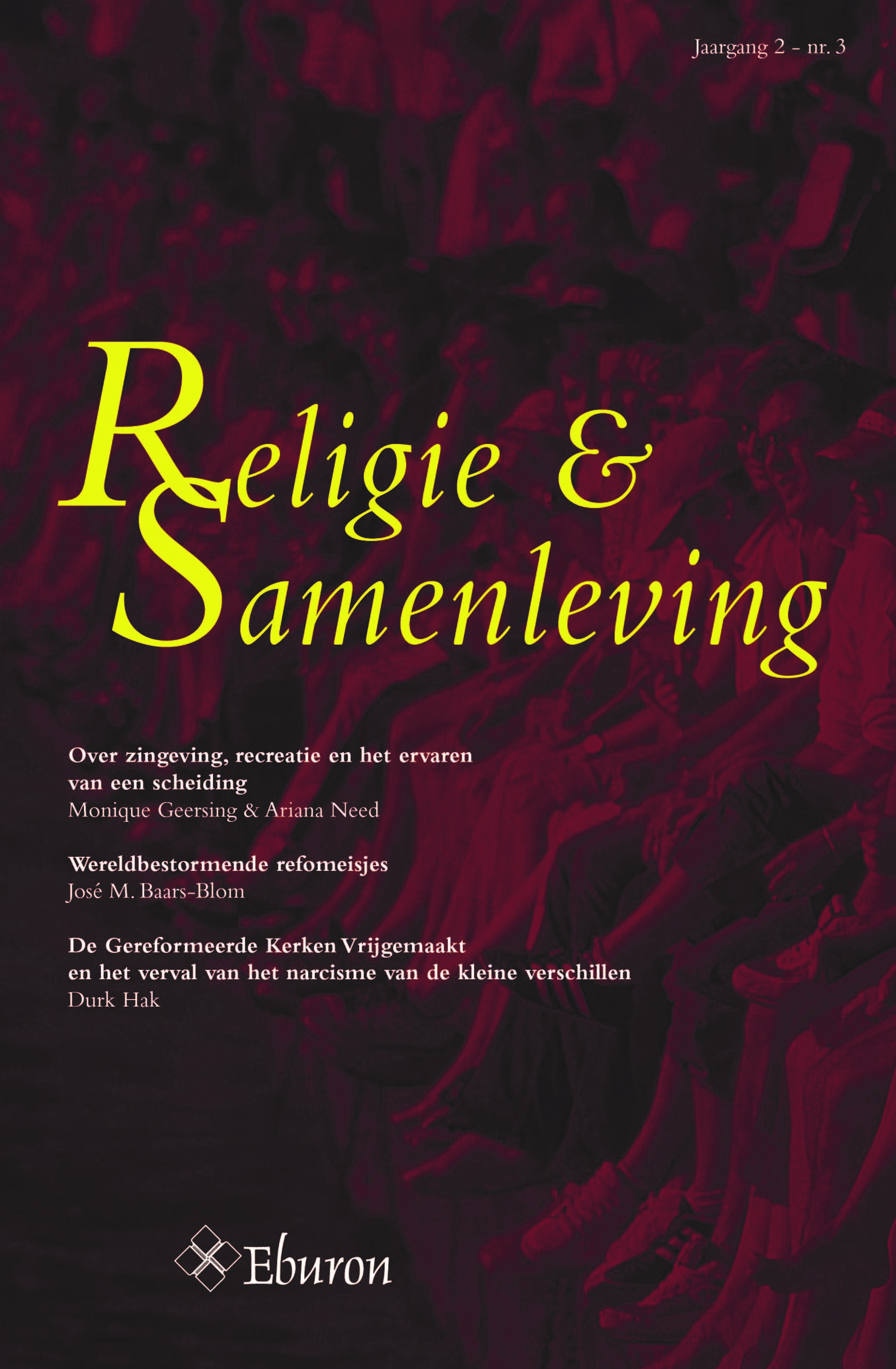Wereldbestormende refomeisjes
DOI:
https://doi.org/10.54195/RS.13192Samenvatting
This article is based on anthropological research into the (re-)production of Reformed culture and the continued studies girls were choosing following their finals at the Pieter Zandt High School (Kampen, Netherlands) in 2005. This culture and the school’s identity are based on the Reformed theology which believes the Bible to be God’s infallible Word. Reformed people adhere to three confessions: the Heidelberg Catechism, the so-called Belgic Confession of Faith and the Canons of Dordt. The Holy Scriptures have authority on all aspects of life: family, school, church, society and personal life. The influence this Reformed culture has on the traditional preferred branches of study appears to be diminishing. In this article it will be argued that in the long run the girls’ choices will become the basis of cultural change within strict Reformed circles. Four types of female examinees are distinguished. The so-called ‘conscious confessors’ will successfully hold on to the ‘beliefs of the fathers’ as far as their values and morals are concerned, without closing their eyes to today’s world. The ‘conservative keepers’ will dedicate themselves to observing the Reformed rules of conducts, whether they know the underlying values and/or reflected on them or not. Innovation will come from the ‘easy innovators’, who will scrutinize the morals and values and replace them with alternatives if considered sensible. The ‘estranging in the margin’ are already halfway leaving the Reformed culture behind and further alienation is to be expected.




